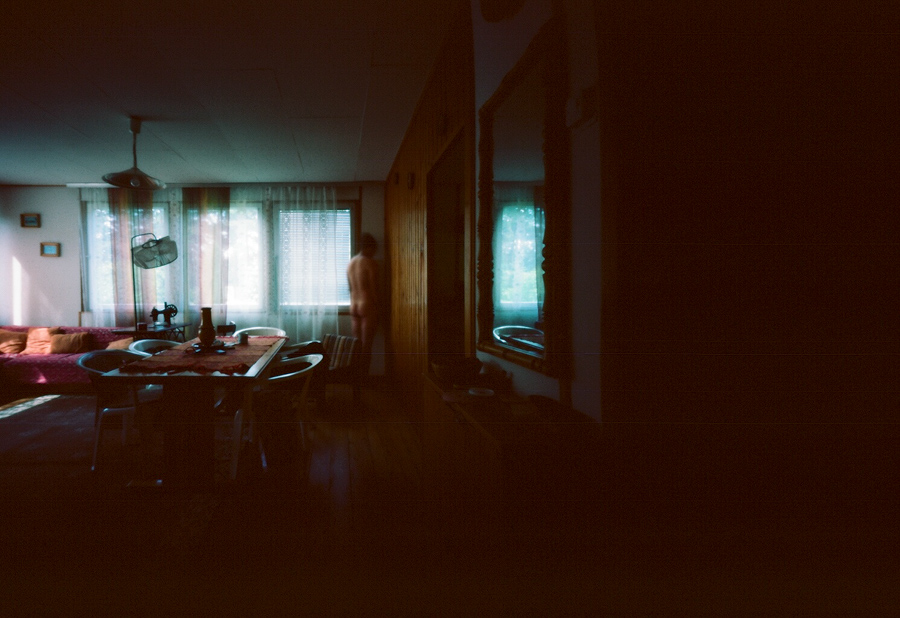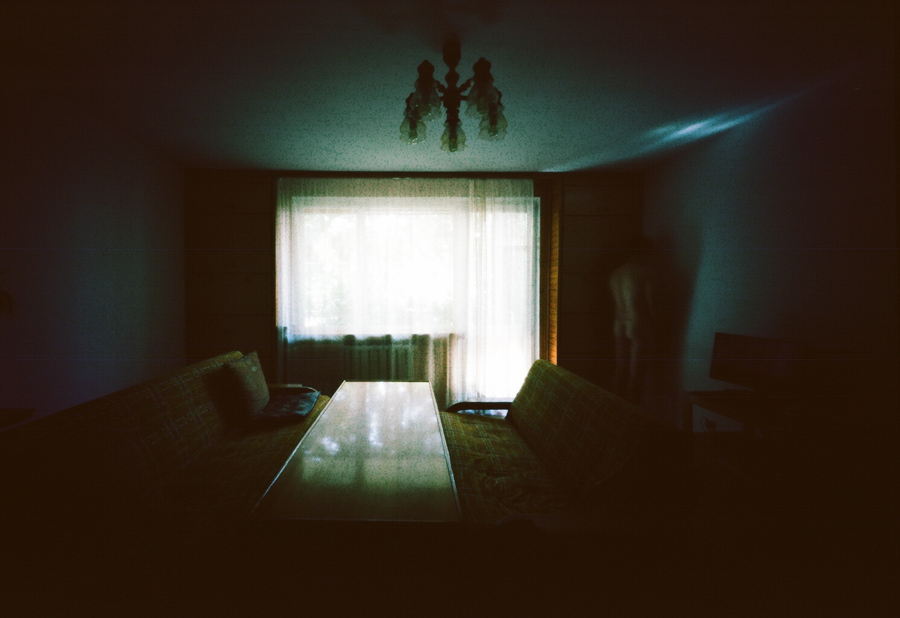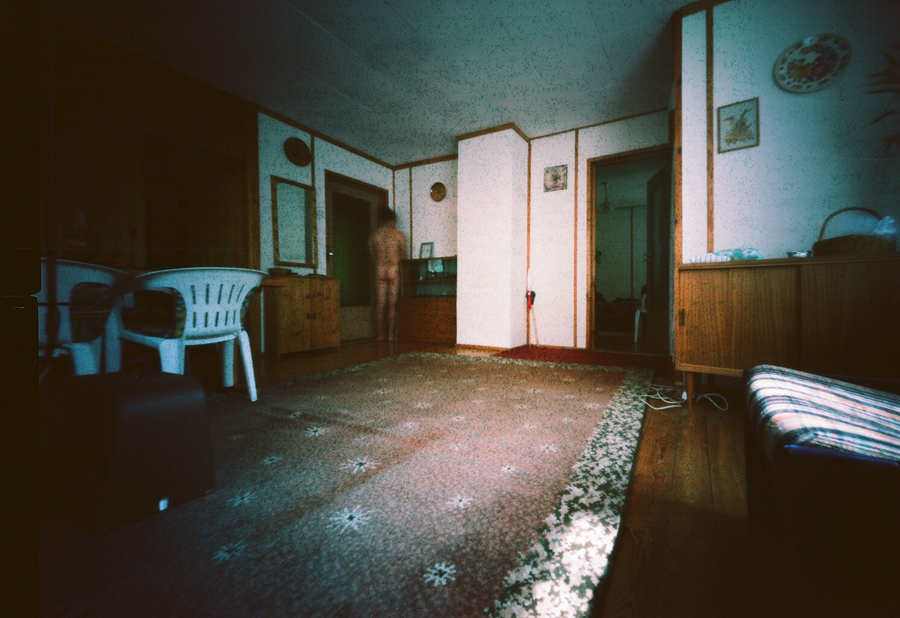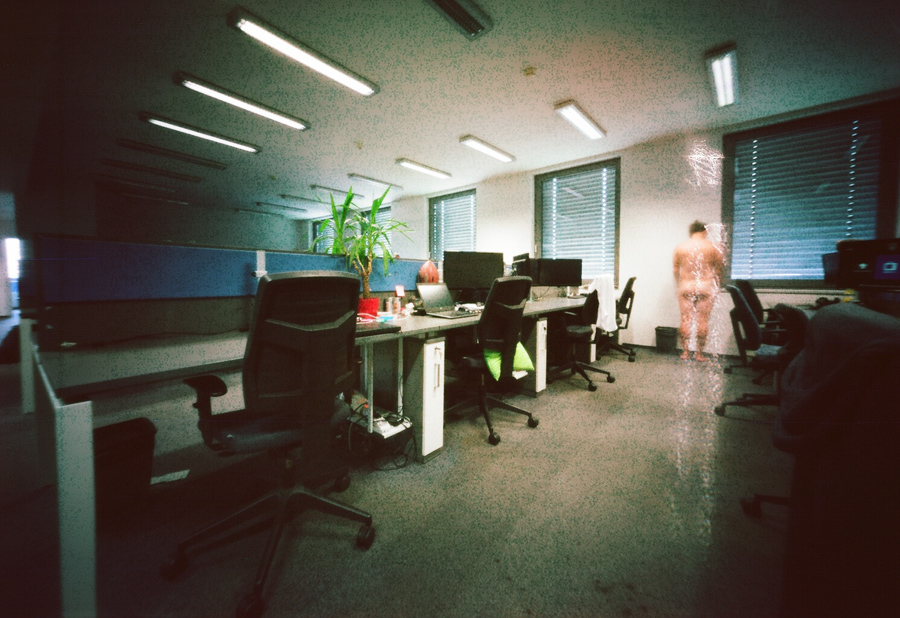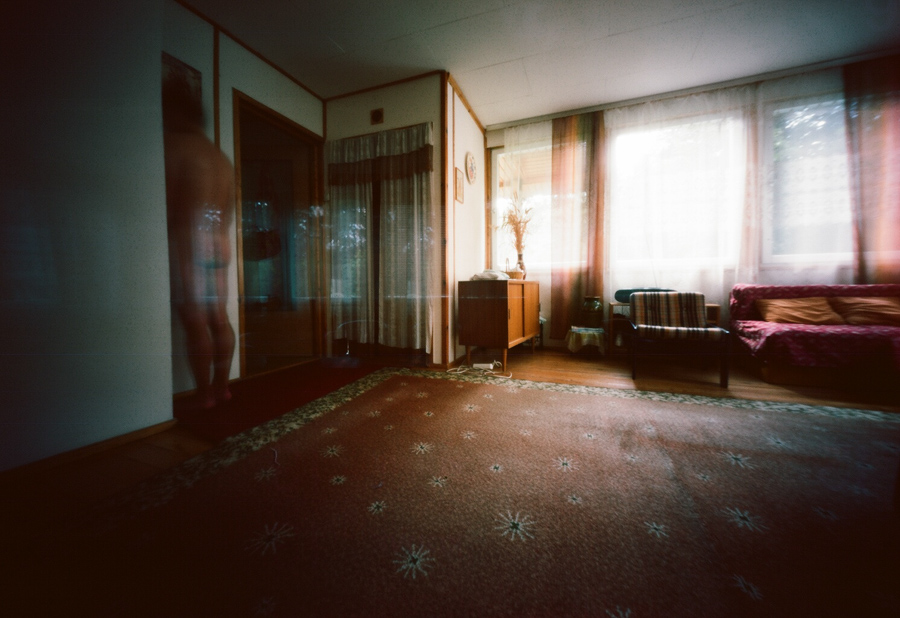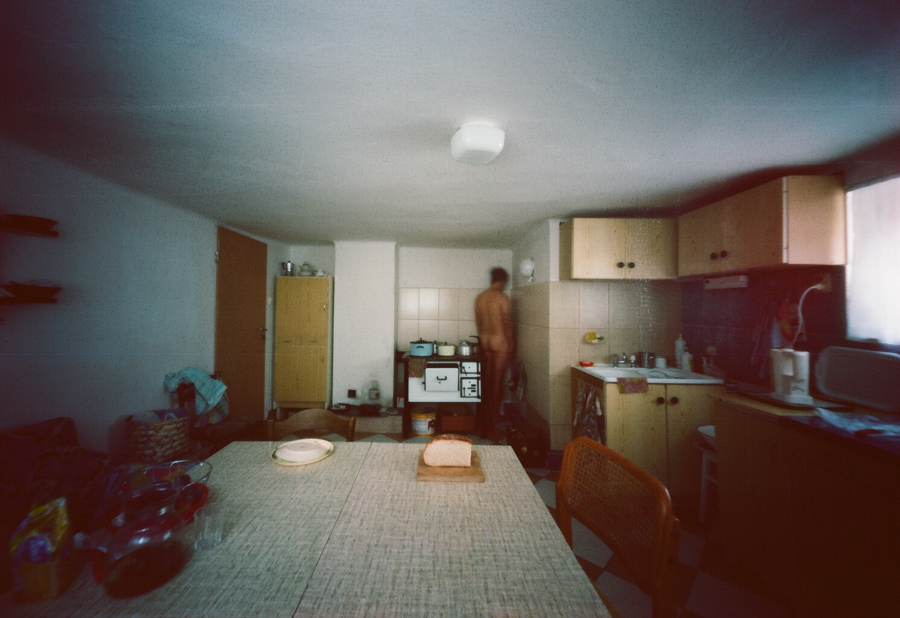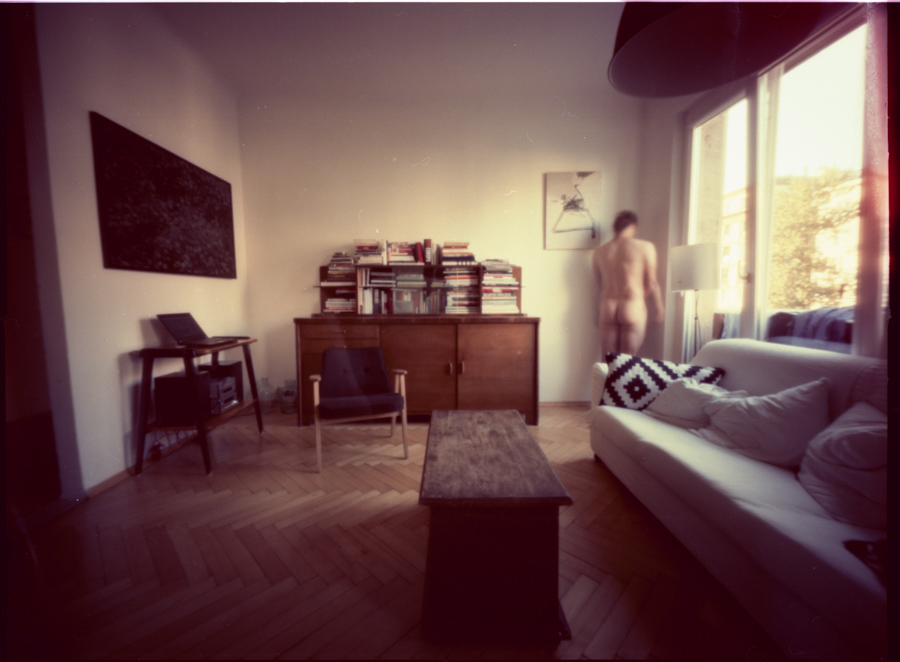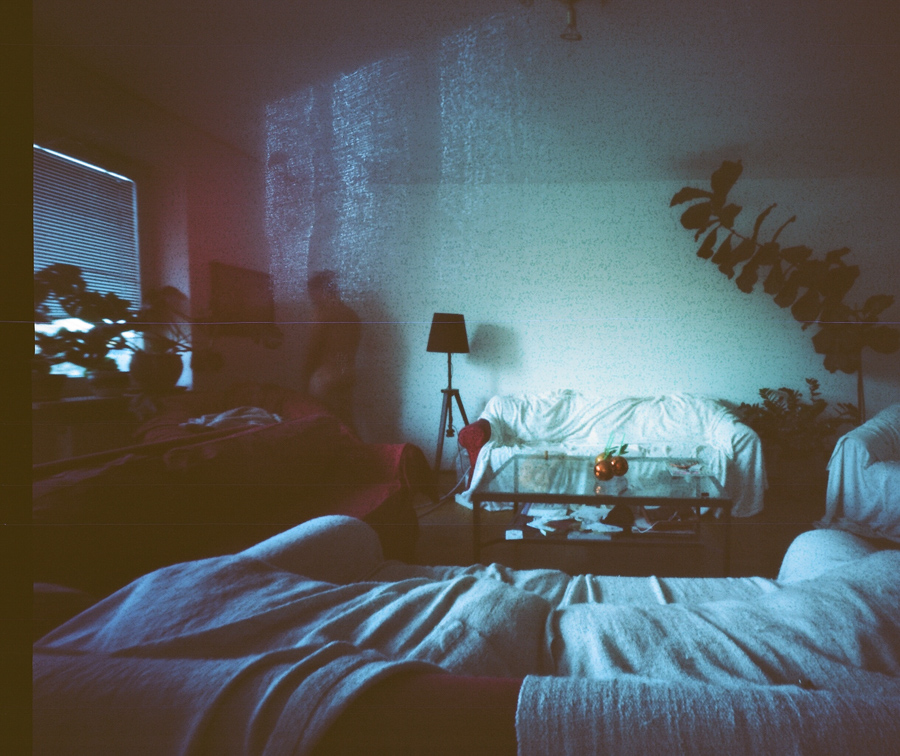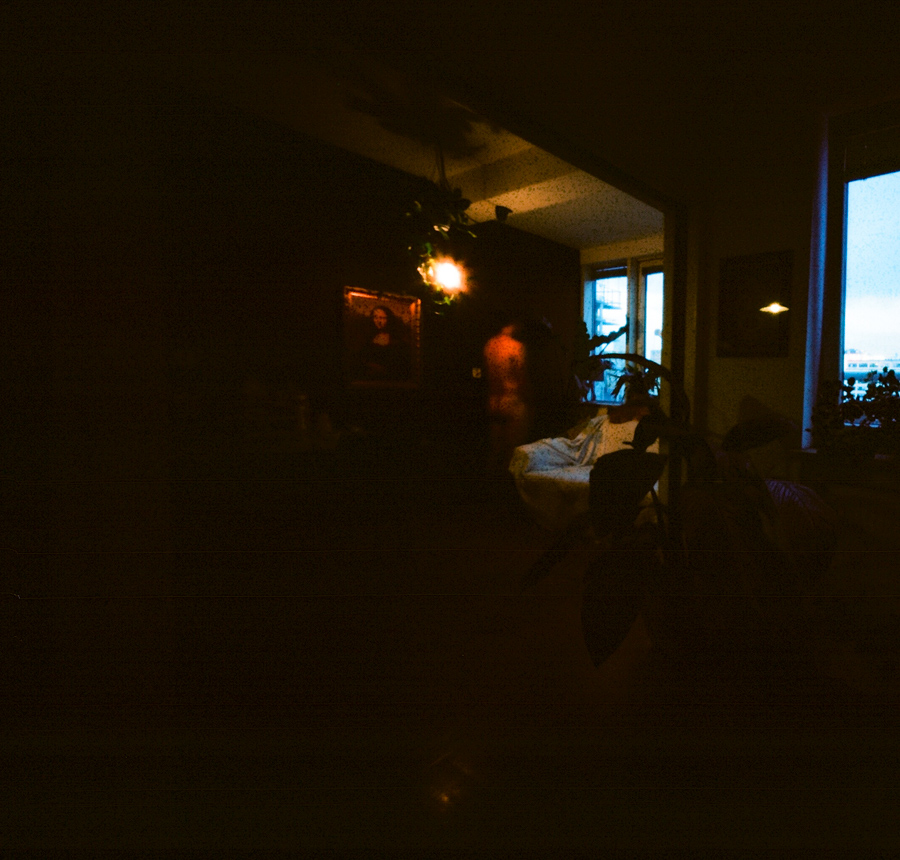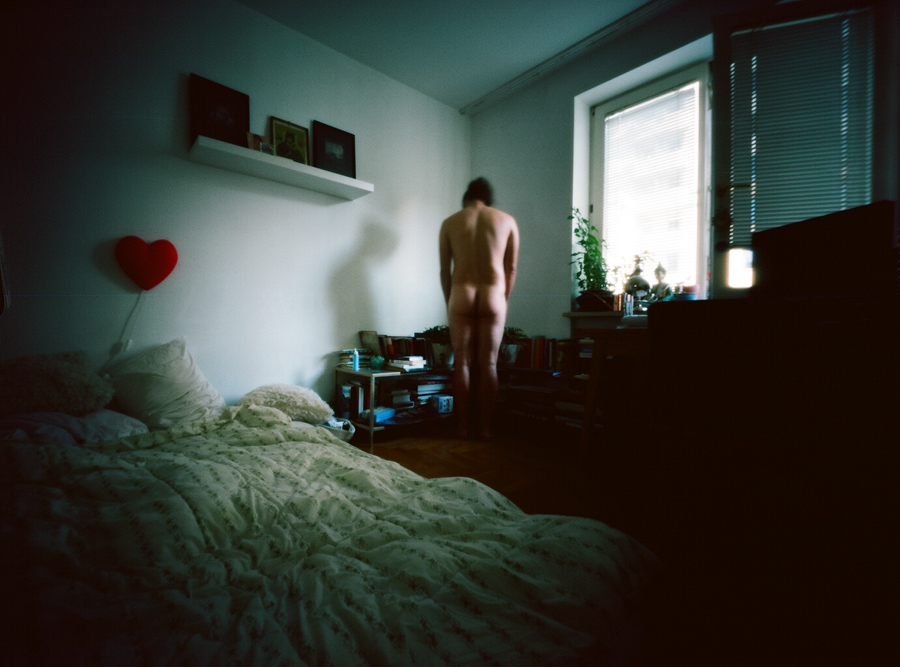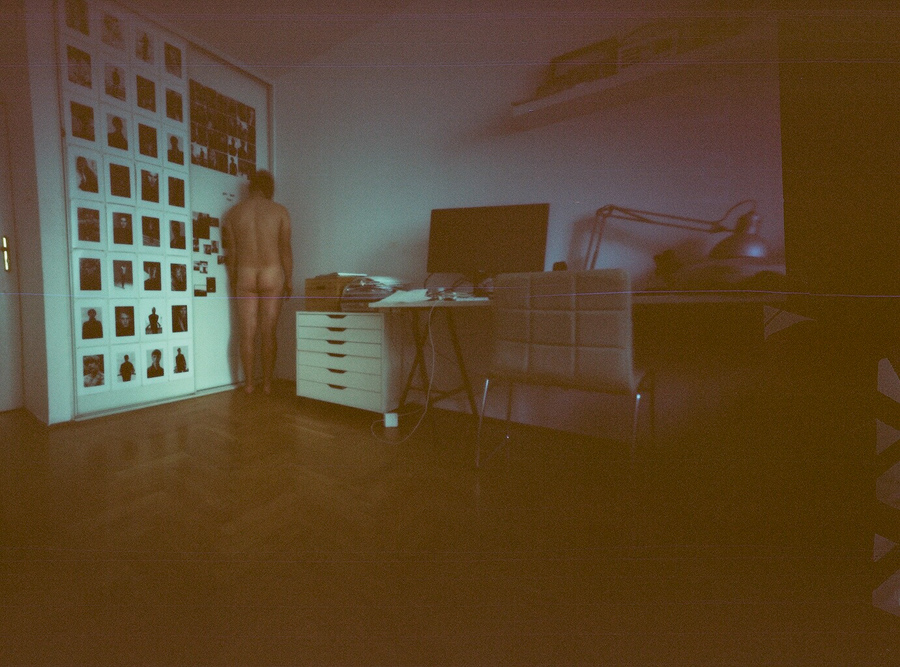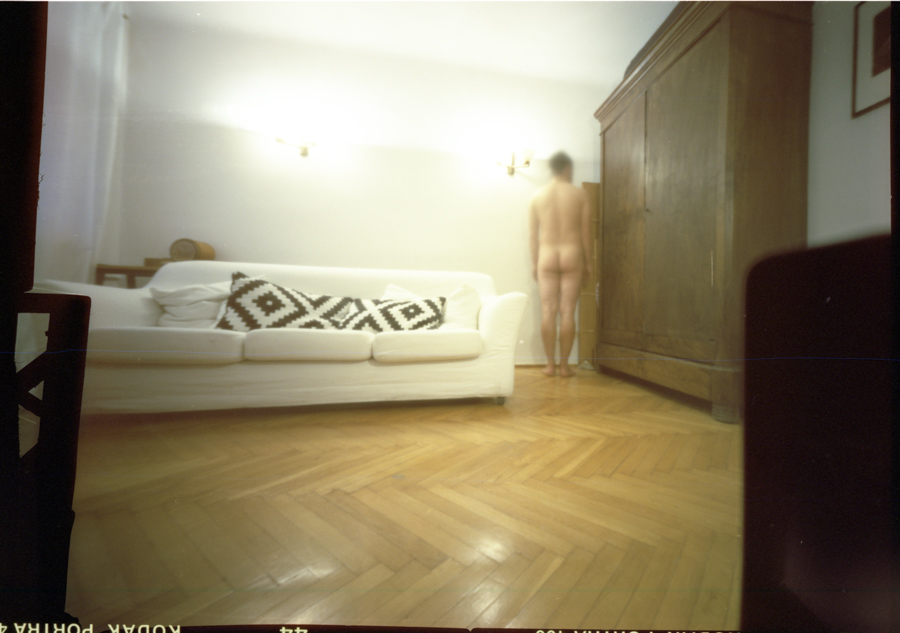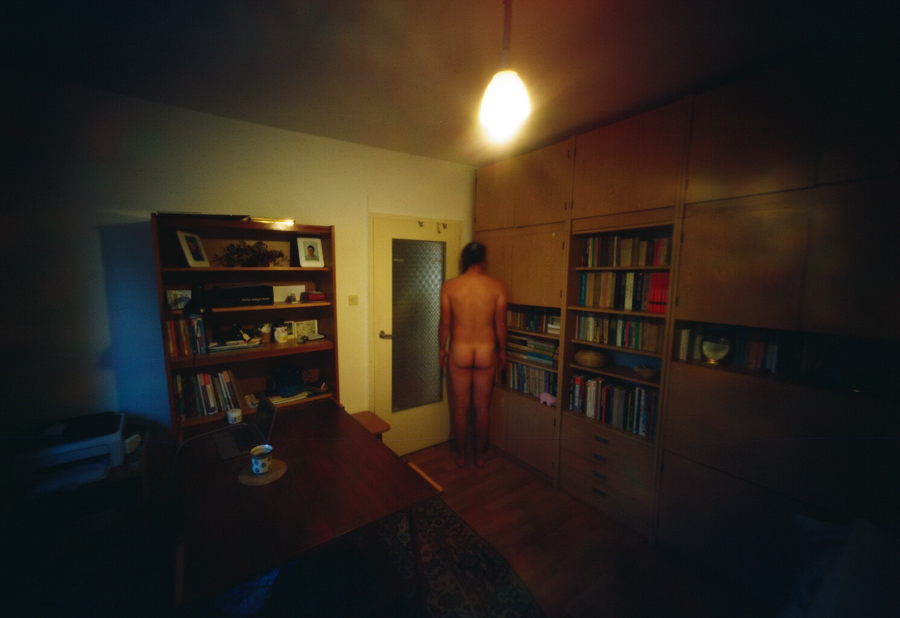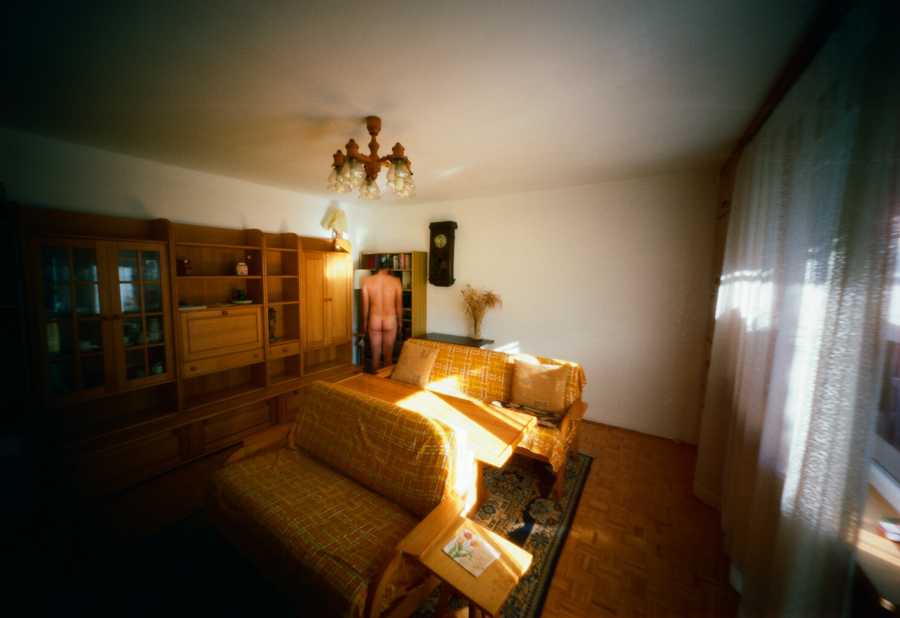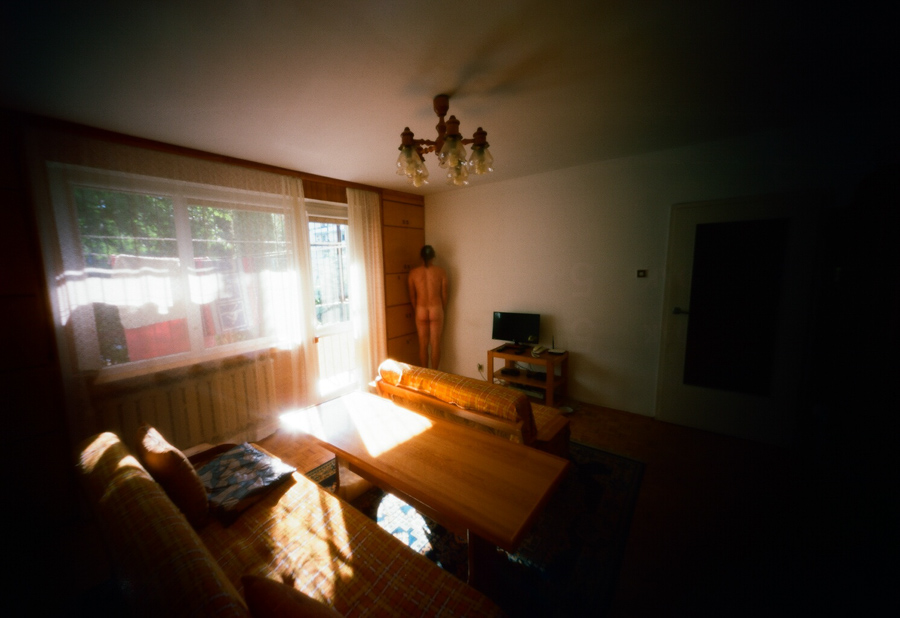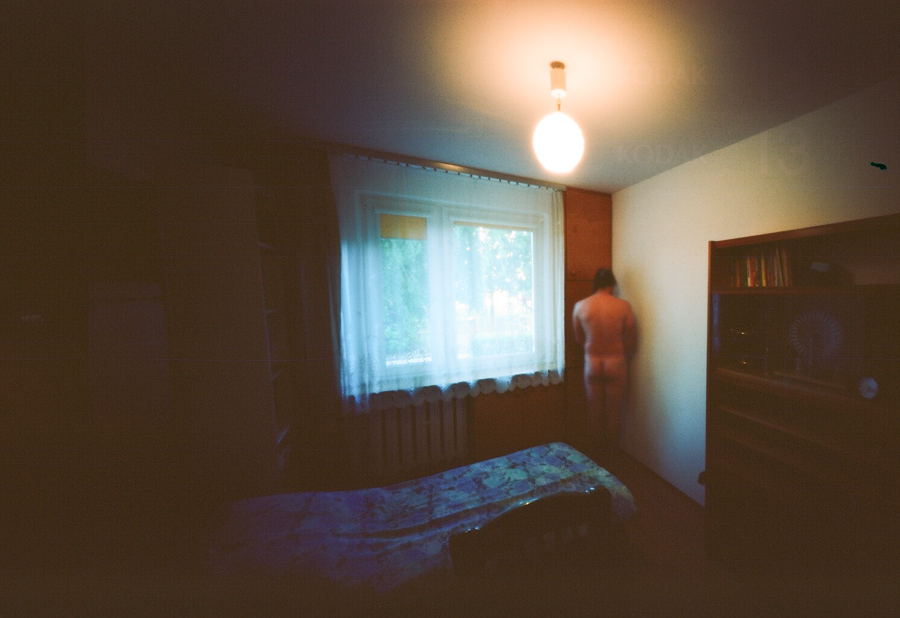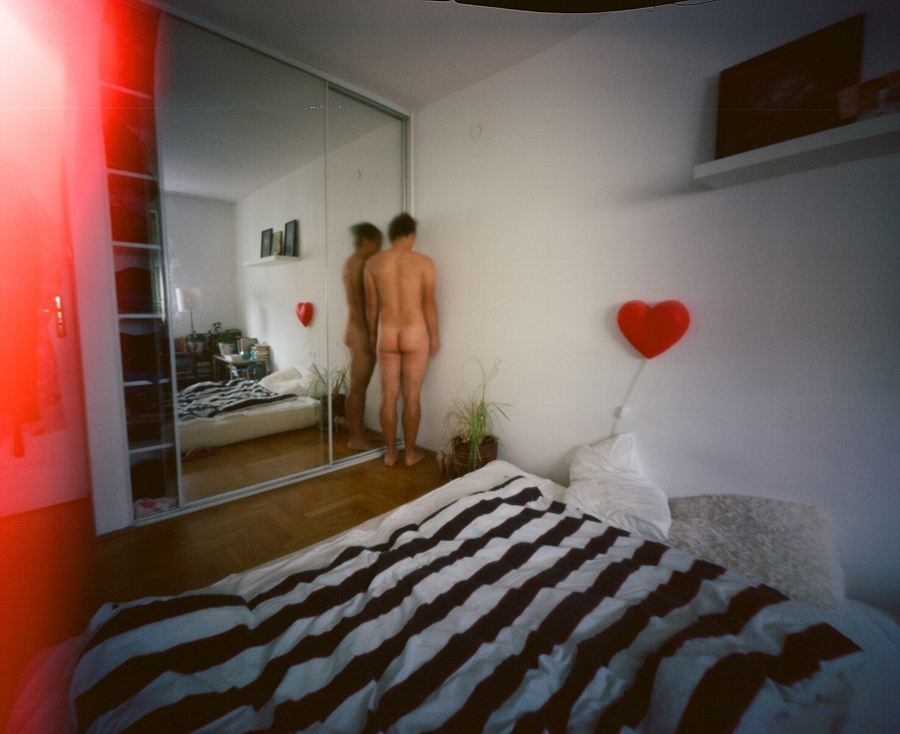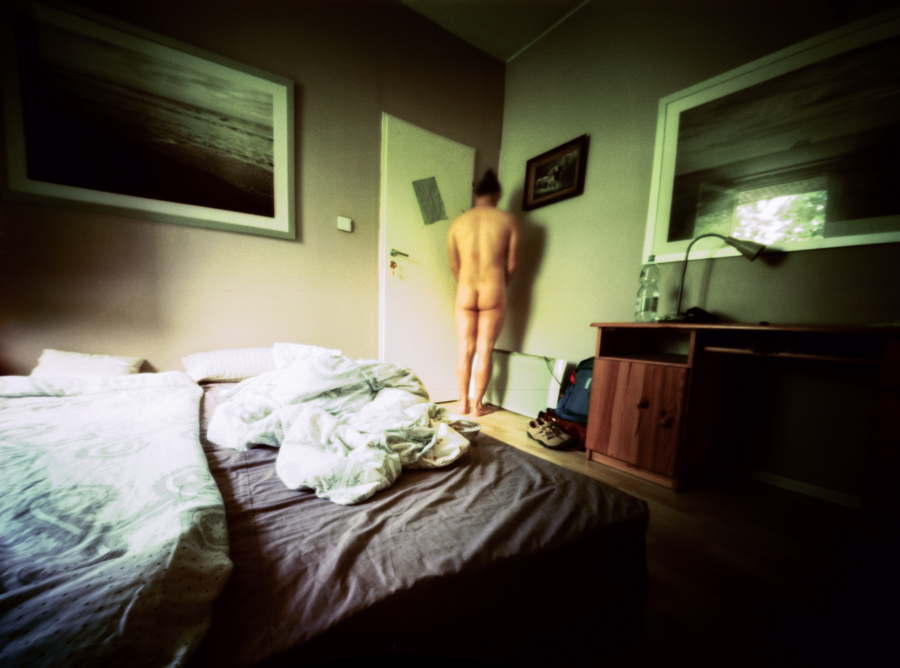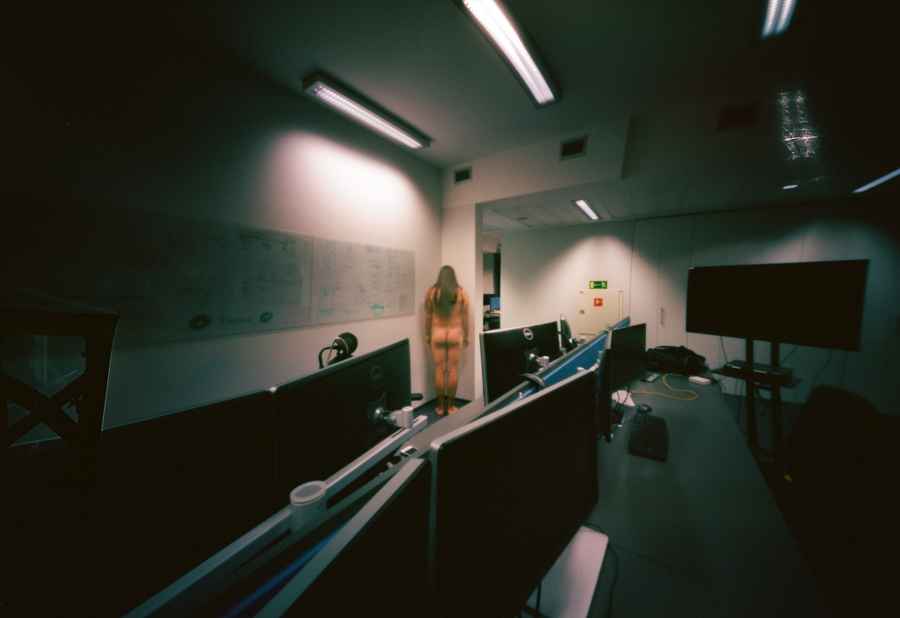Trest [Punishment]
(Trest) Punishment
Punishment in Behavioral Psychology: In operant conditioning, punishment is any change in a human or animal's surroundings that occurs after a given behaviour or response which reduces the likelihood of that behaviour occurring again in the future. As with reinforcement, it is the behaviour, not the animal, that is punished.
Self-abasement is voluntary self-punishment or humiliation in order to atone for some real or imagined wrongdoing.
A personal project that touches the subject of self-abasement - mainly a punishment by not giving oneself the right to rest. The harshness to oneself arises from the figure of an inner, strict father. A father who always has reservations. It's an inner voice that says you always have to be the best at what you do because otherwise, you are nobody. According to analytical psychology, a strong, inner father, is an obstacle on the way to achieving full adulthood. Hence, the selection of pictured punished - standing in a corner. This is the most obvious, most popular type of punishment applied to a child. Time spent while standing in a corner is not only a time of penance but also a confrontation with the space in which the punishment takes place and wrongdoing was committed. The photographs were taken in spaces where I felt that I had done something wrong and given myself a punishment. Spaces familiar and somewhat accustomed. The flat in which I currently live, the previous apartments, the office in which I work every day and finally the family home. The nakedness of the body reflects the aspect of confrontation with space as well as the subordination of the person punished by the instance that targets it.
I took photographs with my own hand-made pinhole camera for film 120. Photographs have a format similar to 6x8 cm. The pinhole camera allows one to register the passage of time - the length of the penalty, which in this form is its main dimension. Exposures lasted from thirty minutes to several hours.
